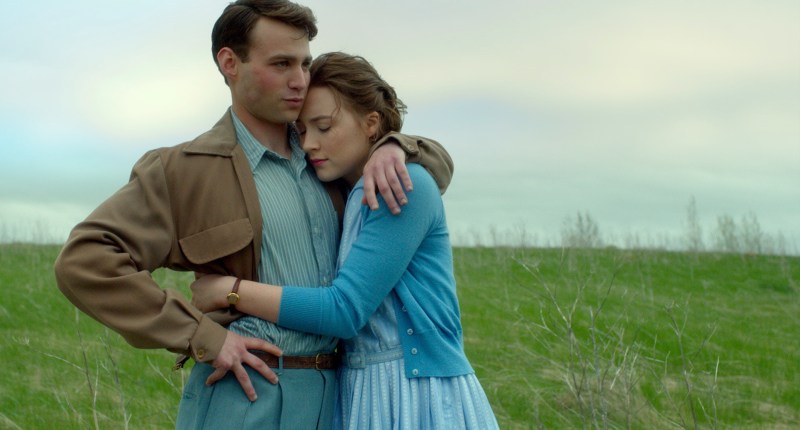“Brooklyn” is a delightfully small film. It is not an action-packed spectacle. Everything that occurs in “Brooklyn” could reasonably happen in real life. It is not even a melodrama – where the events are realistic, but the emotions are heightened. Rather, “Brooklyn” is a very focused character study. And its pleasures come from seeing normal emotions and events play out across the screen. The film’s immense likability lies in the simple, intimate joy of knowing someone else has experienced what you have, too.
“Brooklyn” itself is the story of Eilis Lacey (Saoirse Ronan), an Irish girl entering young adulthood. During the early 1950s, she decides to immigrate to America due to the lack of economic or social opportunities available in her home town. It’s a very reasonable decision, but one Eilis immediately regrets. She misses her home and withdraws into herself, finding it difficult to connect with anyone in a new country. However, a local priest enrolls her in night-classes at a community college and she begins spending time with her fellow housemates. She even strikes up a very tender romantic relationship with a local blue-collar worker. She matures. And that’s it.
Aside from a slightly contrived incident in the third act, the film never artificially manipulates the plot for the sake of drama. Eilis just gradually becomes comfortable with herself and her surroundings, the way we all do. And it is precisely this understated relatability that makes “Brooklyn” magnificent.
This is a wonderfully sparse and subtle film. There are no histrionic confrontations, no dramatic oversimplifications, no moments where the film stops and characters make grand speeches about the immigrant experience or turn-of-the-century America. The film conveys some profound and touching truths about life as a woman and an immigrant, but these arise naturally out of the fact that Ellis is a woman and an immigrant – not because the script works hard to awkwardly shoehorn them into the film.
Through it all, Ronan is revelatory. Ronan, who has been acting since she was nine, sees the challenge of the material and bests it. She initially uses her naturally soft voice and lithe physique to emphasize how stunned and oppressed Eilis is by her new surroundings. Her difficulty seems so great, and her intentions so kind. It is impossible not to root for her. Thus, by the end of the film, when Ellis walks with more confidence and talks with more authority, it is more moving than the millions of world-saving, death-defying, race-against-the-clock finales that get made every year.
There is a scene early on in “Brooklyn” where Eilis attends a party but fails to connect with anyone. At this moment the camera zooms in on her face and we get a minute-long close-up shot of Eilis face as she decides what to do next. Most directors wouldn’t trust their actors to hold the audience’s interest under such intense scrutiny, with so little to do. Ronan doesn’t even need musical cues to help us get a sense for what Eilis is thinking. Yet, through a few subtle facial changes so small they are almost imperceptible, Ronan walks us through Eilis’ feelings and thoughts in such a way that we can completely understand her. Her eyes focus and her face becomes more rigid in such a way that we can tell that she has a made her decision. This scene perfectly exemplifies the strengths of this film. It cares about the subtle feelings and minor events we all experience, but pay far too little attention to.
Contact Raymond Maspons at raymondm ‘at’ stanford.edu.
